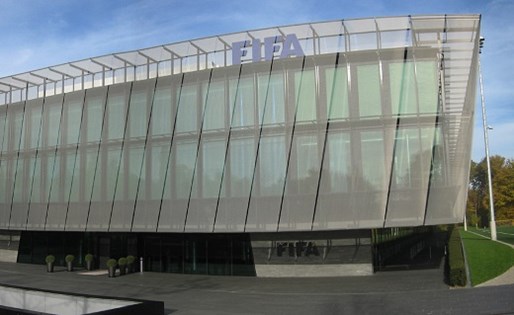A change in FIFA requires a change of organisational structure
In spite of the drama that hit FIFA when seven top officials from the world governing body of football were arrested at a Zürich hotel at the request of the US Justice Department, the FIFA congress and presidential election will presumably go on as planned.
At the opening ceremony of the 65th FIFA Congress last night, Sepp Blatter made his first public appearance since the arrests and pledged that the organisation that he has been in charge of for the past 17 years is now at a turning point.
“The events of yesterday have cast a long shadow over football and this congress. They bring shame and humiliation to football and demand change from us all. We cannot allow the reputation of FIFAto be dragged through the mud any longer,” Blatter said who has led the organisation since 1998.
“I cannot monitor everyone all of the time. If people want to do wrong, they will try to hide it. But it must fall to me to be ultimately responsible for the wellbeing of our organisation and find a way forward to fix things.”
To Blatter, this ‘ultimate responsibility’ does not include the option of stepping down from his candidature. Blatter is still a favourite to win the election for a fifth term against Jordanian Prince Ali, even if the latter should gain support in the wake of the scandal. The latest to publicly declare a vote for the prince are the Australian and the US FAs.
Most members of the European football confederation are also expected to vote against Blatter. But in an analysis for the German news magazine Der Spiegel, investigative journalist Jens Weinreich calls UEFA’s inability to challenge Sepp Blatter’s leadership of the corruption-ridden FIFA a missed historical opportunity.
“Together with his troops, UEFA President Michel Platini, once a favorite of Blatter, should have boycotted the FIFA Congress in Zurich and prevented Friday’s planned re-election of the FIFA President. He did not. UEFA is – of course – divided. UEFA has, of course, immense corruption problems as well. Eight of their executives are sitting in both the UEFA and the FIFA Executive Committee,” Weinreich writes.
Only if one of the most prominent ‘king makers’ in international sport, Sheikh Ahmad Al-Fahad Al-Sabah, should swing his support from Blatter to Prince Ali, the Jordanian opponent to Blatter will stand a chance, according to Weinreich. That was Thursday afternoon not very likely to happen, he concludes.
But even if Blatter should surprisingly lose the election, FIFA will not be reformed overnight. A real reform requires fundamental changes to the structure of the organisation, say observers and commentators.
According to blogger and expert in sports governance Roger Pielke Jr., FIFA reigns in a ‘netherworld of governance’ where very few regulatives apply, making the organisation vulnerable to corruption.
“One of the biggest things, which many people don't really get, is that FIFA isn't a business, it's not an international organization — like the WHO, for example — and it's not governmental. Like many international sports bodies, including the Olympics, FIFA falls into a netherworld of governance,” said Pielke in an interview with vox.com
“It's basically a members' club. […] But FIFA has gotten to the point where, in terms of scale, it has characteristics of a governmental organization or a big business,” he said and suggests three alternative ways of structuring FIFA that would all make way for more oversight of the organization.
One is the World Anti-Doping Agency, which is largely overseen by governments, the other is a traditional big business company and a third option could be to place FIFA under the UN, maybe UNESCO, securing tighter connections to the international community and as such more governance control.
Another football commentator, journalist and author, David Goldblatt agrees that radical changes are necessary if corruption is to be rooted out of FIFA and according to Goldblatt, the arrests this Wednesday will not do the trick alone.
“Reform should not be confined to chucking out the bad apples – it’s too late for that. Instead, Fifa’s constitution should be rewritten, specifying and intensifying the democratic and social obligations of its constituent members, and transforming its mode and rationale for awarding World Cups. This is the bare minimum that the situation demands. That neither candidate for the presidential election is running on anything close to this agenda is testament to how badly political reform is needed and how hard it is going to be to achieve,” Goldblatt wrote in a comment piece in The Guardian.
But Wednesday’s action by the US Justice Department and the media frenzy it has caused could make for a momentum, that might spark a real change in FIFA.
“This is the most significant opportunity for change that's come along so far,” said Pielke, while also stressing that it would be ‘going out on a limb’ to say that FIFA will change.
“We're at a fork in the road,” said Pielke, “and a lot depends on what people in the sports community, who care about corruption, collectively make of it.”
The election today might give a hint about which direction FIFA choses, but both oberservers and Blatter agree that there is no easy way.
“Let this be the turning point,” said Blatter concluding his opening speech. “Tomorrow, at the Congress, we will begin a long and difficult road.”
More information






